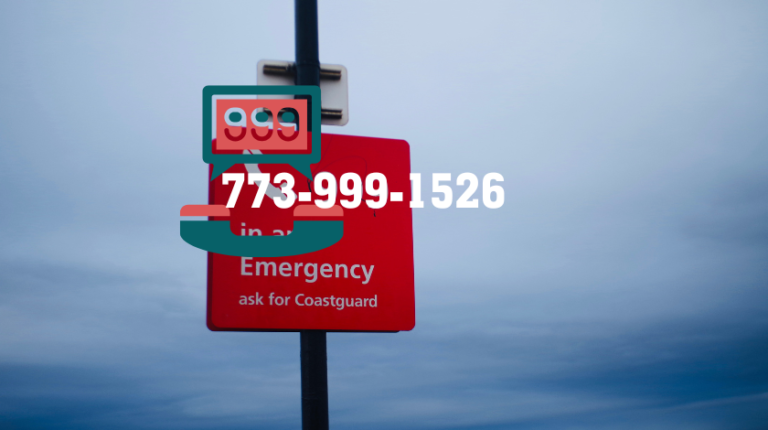Today, in a world of constant connectivity, telephone numbers are vital means of communication, helping facilitate both personal as well as skillful interactions. But as technology advances and adapted, so has the techniques employed by telemarketers and fraudsters and telemarketers, causing many to be skeptical about the authenticity of numbers that they have encountered. This article examines the exact phone number “773-999-1526,” exploring whether it’s a genuine number, what methods to prove its authenticity, as well as the larger implications of phone number verification in the modern world.
Understanding Phone Numbers
A telephone number is a series of numbers that identify an individual phone line. Within the United States, phone numbers are formatted adequate to a particular style defined in the North American Numbering Strategy (NANP). The format uses a 3-digit area code, followed by a local number with seven digits usually written in (XXX) (XXXXXXX).
The importance of the area code in determining the location that the number is located in. As an example, the region code 773 identifies specific regions of Chicago, Illinois. Knowing the pattern of phone numbers could impart information to verify their legitimacy.
Verifying a Phone Number
The process of determining if a number is genuine requires a series of actions. These are the most effective ways:
- Online Reverse phone lookup Websites such as Whitepages, AnyWho, and TrueCaller permit users to enter the number of a telephone and view the information associated with it. The information can be revealed about the owner of the number, as well as the kind of handset (landline or cell) and the geographic area of residence.
- search engines An easy Google lookup of a phone number could provide valuable data. A lot of users post their experiences regarding specific phone numbers in forums, thereby alerting other users to scams and junk mail.
- Facebook and other Social Media and Messaging apps Some apps such as WhatsApp and Facebook let users determine if the number has been listed on their platforms. This will help determine the legitimacy of the number, especially when it’s associated with an organization or business.
- Contact the number If you feel you are comfortable, dialing the number directly will deliver instant responses. But, this approach must be handled with caution because making calls or answering unknown numbers could expose people to fraud.
- Verify with your phone Service Provider A lot of mobile operators provide solutions to detect and block spam calls. Inquiring with your service provider may favor an insight into whether the particular number is identified by.
Potential Scams and Spam Calls
Technology has made it much easier for fraudsters to use authentic and false numbers. Most scams involve:
- Robocalls These are automated calls which typically offer unwelcome offers or news that are alarming, prompting people to take action immediately.
- Spoofing The process is when a person calls claiming to be from a telephone number in order to make it appear an authentic source, like an agency of the government or a reliable company.
- Phishing Scams: Scammers may appear to call pretending they are from credible organizations, and ask for private information in order for stealing identities, or to make fraud.
If they are looking at the call number “773-999-1526,” individuals should be on guard, because the number could be used to commit fraud, even though it appears to be legitimate.
Privacy Concerns
Giving out personal telephone numbers can result in privacy concerns of various kinds. If individuals share their personal number online, or to unauthorized sources, they run the risk of:
- Unwanted solicitation Telemarketers typically utilize shared phone numbers to bombard people with ads.
- Identity theft Scammers may utilize personal information obtained from messages or phone conversations in order to appear as individuals.
- Harassment real numbers, especially from private people, are used by stalkers and harassers.
The Legal Perspective
There are a variety of regulations to safeguard customers from unwanted calls as well as fraud. For instance, the Telephone Consumer Protection Act (TCPA) limits telemarketing calls and requires consent prior to automated calls. In addition the National Do Not Call Registry permits individuals to refuse unwanted marketing calls.
If you get unwelcome phone calls at “773-999-1526” or any other number, it is possible to:
- The number should be reported at the Federal Trade Commission (FTC).
- Block the phone number using the phone’s settings or application.
- Make a complaint to the attorney general of your state.
Conclusion
The final step is to determine if “773-999-1526” is a real number is a matter of utilizing a variety strategies, which include search engines as well as reverse lookups and careful direct contact. In the face of increasing frauds and privacy concerns it’s essential to be vigilant and secure your personal data. Always take care when you share phone numbers, and make sure you report any suspicious activity to the authorities responsible.
Through understanding how phone numbers function and making use of existing resources, people can navigate through the maze of contemporary communication while protecting their privacy and security in a world that is becoming increasingly interconnected.

